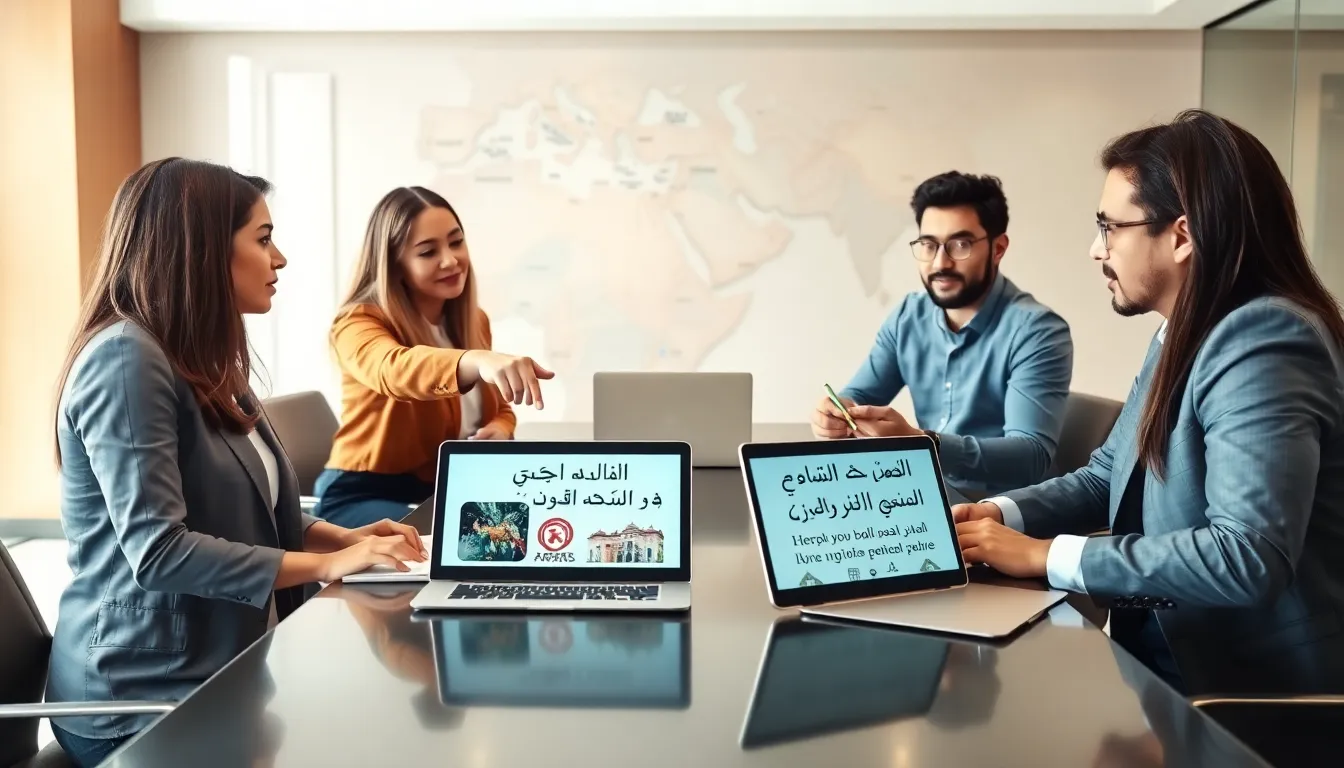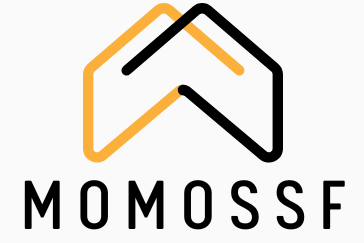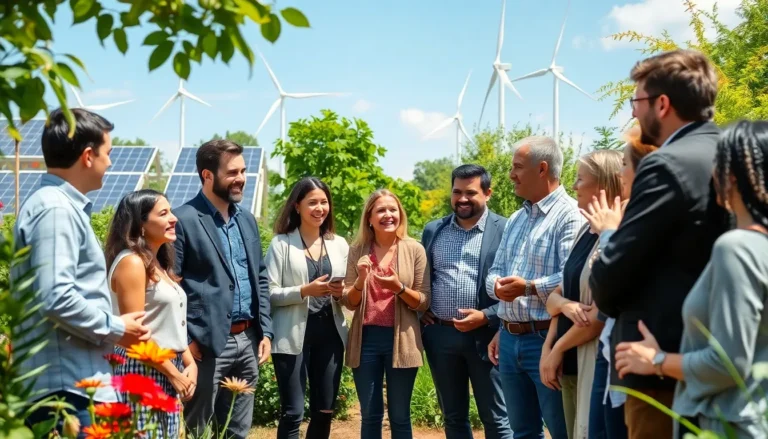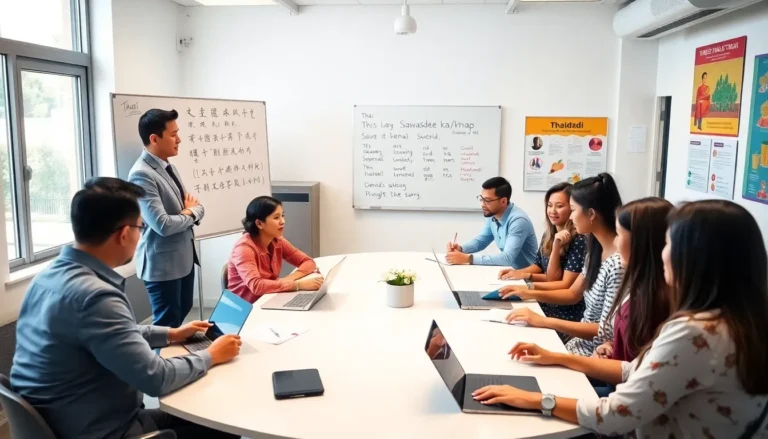Learning Arabic might seem like a challenging job, but let’s face it, who doesn’t want to sound extravagant at a dinner party? You could effortlessly drop some Arabic phrases while savoring your falafel, impressing your friends and before you know it, you’ll be the social butterfly of linguistic prowess. Beyond just the allure of amazing food, learning Arabic opens a treasure trove of cultural insights and opportunities. So why not immerse and find out how this fascinating language can work wonders in transforming your personal and professional life?
Table of Contents
ToggleWhy Learn Arabic?

When considering the question of why learn Arabic, the answer opens up a world of benefits that extend well beyond simple conversation.
Benefits of Learning Arabic
First and foremost, Arabic is the fifth most spoken language in the world, with over 400 million native speakers. Imagine having access to a new social network that spans the Middle East and Northern Africa. Also, learning Arabic enhances cognitive abilities. Studies have shown that bilingual individuals tend to have better problem-solving skills and improved creativity. So, while they are mastering the art of haggling in Arabic, they are simultaneously sharpening their minds.
Cultural Significance of Arabic
Arabic is not just a language: it’s a living piece of history. This beautiful language is steeped in rich traditions, literature, and a variety of cultures. By learning Arabic, one can engage with famed poets like Rumi and pre-eminent philosophers like Al-Farabi. Each dialect reflects a unique cultural aspect, giving learners deeper insight into various Arab nations and their customs.
Career Opportunities for Arabic Speakers
In our global economy, proficiency in Arabic can skyrocket one’s career. From diplomacy to journalism, businesses are always on the lookout for individuals who can bridge cultural gaps. Companies often seek Arabic speakers for roles in international relations, translating, and even healthcare. The demand is so high that Arabic-speaking individuals are frequently offered lucrative salaries, not to mention the prestige that comes with such a skill.
How to Start Learning Arabic
Starting on the journey to learn Arabic involves a few thoughtful steps to ensure a rewarding experience.
Setting Realistic Goals
Initiating the learning process requires setting achievable goals. Instead of aiming to master the language overnight, it can be fruitful to set smaller, measurable targets. For instance, focusing on learning basic conversational phrases or mastering the Arabic alphabet can provide quick wins and keep motivation flowing.
Choosing the Right Resources
A world of resources exists for those keen on learning Arabic. Textbooks, online courses, mobile apps, and audio resources offer diverse methods suited for different learning styles. Programs such as Duolingo or Rosetta Stone have made strides in facilitating language learning through gamification. Hence, options can be tailored to suit anyone’s preference or schedule.
Finding a Language Partner or Tutor
One of the most effective ways to learn Arabic is by engaging with a language partner or hiring a tutor. Conversational practice is invaluable and helps accelerate language acquisition. Many platforms offer language exchange services where one can converse with native Arabic speakers looking to learn your language in return. Not only does this provide meaningful practice, but it also fosters genuine friendships and cultural exchange.
Effective Learning Strategies
Mastering Arabic effectively involves employing various learning strategies that cater to diverse skills.
Immersion Techniques
Immersion is key in language learning. One can enhance their Arabic skills through media consumption, watching Arabic films, listening to music, or even tuning into Arabic news channels. Daily exposure aids retention and aids natural conversation flow. Besides, trying to incorporate Arabic in daily contexts, such as labeling household items with their Arabic names, can ease the learning process.
Utilizing Technology for Language Learning
Leveraging technology is essential for successful Arabic language learning. Language learning apps, online forums, and digital flashcards can supplement traditional resources. Also, platforms like YouTube offer a wealth of content ranging from grammar lessons to cultural explorations. These tools make learning more engaging and accessible.
Practicing Speaking and Listening Skills
Speaking and listening should not be overlooked in the pursuit of linguistic mastery. Language podcasts, audiobooks, and interactive exercises can solidify one’s listening skills. Regular practice through conversation, whether with a tutor or language partner, further enhances speaking abilities, enabling learners to develop fluency and confidence.
Challenges in Learning Arabic
Even though its rewarding nature, learning Arabic does not come without its challenges.
Complexity of Arabic Script
Arabic employs a script that may appear daunting at first. The fluidity of letters changes depending on their position in a word, posing a challenge for new learners. But, with dedicated practice, students can master reading and writing over time. Every small step taken creates progress and confidence.
Dialects and Variations
Also, Arabic encompasses various dialects that can differ drastically across regions. Learners must decide whether to focus on Modern Standard Arabic for formal contexts or a specific dialect for conversational purposes. Understanding these differences can be confusing, but it’s wise to align learning goals with practical applications.
Overcoming Stereotypes and Misconceptions
Finally, overcoming stereotypes about the language and its speakers might be essential. Awareness of cultural diversity within the Arab world can enable learners to approach the language with an open mind. Engaging with different narratives helps challenge misconceptions that could otherwise hinder the learning process.






